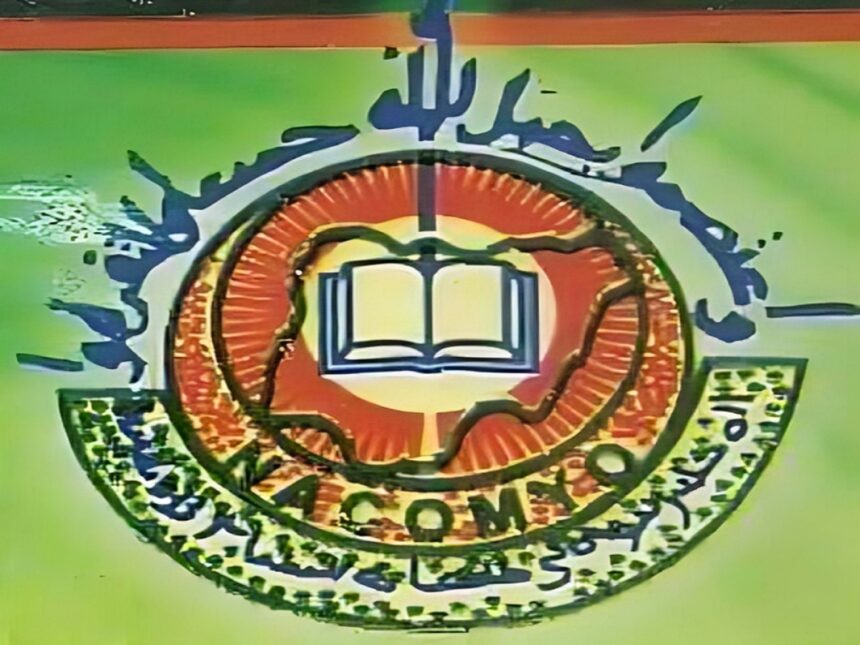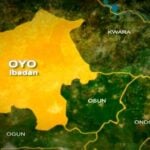
The National Council of Muslim Youth Organisations (NACOMYO) has addressed recent concerns raised by the National Prayer Altar regarding the Federal Government’s recognition of the National Board for Arabic and Islamic Studies (NBAIS) certificates as equivalent to WAEC, NECO and NBTE qualifications.
In a statement signed by its National Secretary General, Alhaji Mas’ud Akintola, NACOMYO noted that while it respects the right of all groups to express their views, “it is important to clarify that the recognition of NBAIS certificates is a constitutionally sound, inclusive and progressive policy that reflects Nigeria’s religious diversity and educational pluralism.”
The council noted that “contrary to claims that this policy violates Nigeria’s constitutional secularity, Section 10 of the 1999 Constitution prohibits the establishment of a state religion but does not forbid the recognition of religious educational qualifications that meet national academic standards.”
It said, “NBAIS certificate recognition aligns with Nigeria’s pluralistic society and respects the constitutional guarantee of freedom of religion under Section 38.
“This policy does not endorse Islam as a state religion but acknowledges an established educational framework serving a significant segment of Nigerian students.
“NBAIS certificates provide an alternative academic pathway for students pursuing Arabic and Islamic studies, fields integral to Nigeria’s cultural and educational landscape. The inclusion of NBAIS qualifications in national admissions promotes inclusivity and diversity, reflecting Nigeria’s multi-religious identity.
“Religious education is already part of the secular school curriculum, with both Islamic and Christian Religious Studies taught nationwide, underscoring that religious education is embedded within the secular system.”
Addressing the issue of legal and policy backing, the apex body of Muslim youth organisations added that the recognition of NBAIS certificates is supported by clear policy directives.
It said, “The National Universities Commission (NUC), following resolutions by the National Council on Education, recognises the Senior Arabic and Islamic Secondary School Certificate Examination (SAISSCE) as a valid O’level qualification for tertiary admissions.
“Furthermore, the Nursing and Midwifery Council of Nigeria affirms the SAISSCE’s validity for nursing programme admissions. These endorsements demonstrate institutional consensus and policy coherence.”
On equity concerns, NACOMYO said “while no equivalent Christian or other religious certification bodies currently have similar recognition, this reflects the present educational landscape rather than any discriminatory intent. The appropriate approach is to develop comparable frameworks for other religious and cultural education systems to ensure fairness.”
It said “revoking NBAIS certificate equivalence would unfairly disadvantage students who have pursued legitimate academic paths within the Islamic educational tradition.”
On the claim of safeguarding national unity and cohesion, the organisation affirmed that the recognition of NBAIS certificates fosters national unity by validating diverse educational backgrounds and encouraging mutual respect among Nigeria’s religious communities.
“This policy supports Nigeria’s commitment to pluralism, tolerance, and peaceful coexistence.
“Concerns that the policy could ignite religious or ethnic tensions overlook Nigeria’s broader social context and the positive role of inclusive education in nation-building,” it said.
The religious group also pointed out the attempted use of authority and representation as a red herring by the National Prayer Altar’s petition, which cites over 100 religious and academic leaders to support its position.
The council responded that while their voices are respected, policy discussions must be grounded in constitutional facts, educational realities and broad consensus, rather than appeals to authority.
“The recognition of NBAIS certificates as equivalent to WAEC, NECO and NBTE qualifications is a constitutionally sound, inclusive, and progressive policy. Rather than abolishing this equivalence, efforts should focus on expanding similar recognition to other religious and cultural educational bodies to ensure fairness and uphold Nigeria’s secular, merit-based education principles,” it said.
NACOMYO affirmed its commitment to constructive dialogue with all stakeholders to promote an education system that is inclusive, equitable and reflective of Nigeria’s rich cultural and religious heritage.
ALSO READ TOP STORIES FROM NIGERIAN TRIBUNE
WATCH TOP VIDEOS FROM NIGERIAN TRIBUNE TV
- Let’s Talk About SELF-AWARENESS
- Is Your Confidence Mistaken for Pride? Let’s talk about it
- Is Etiquette About Perfection…Or Just Not Being Rude?
- Top Psychologist Reveal 3 Signs You’re Struggling With Imposter Syndrome
- Do You Pick Up Work-Related Calls at Midnight or Never? Let’s Talk About Boundaries






